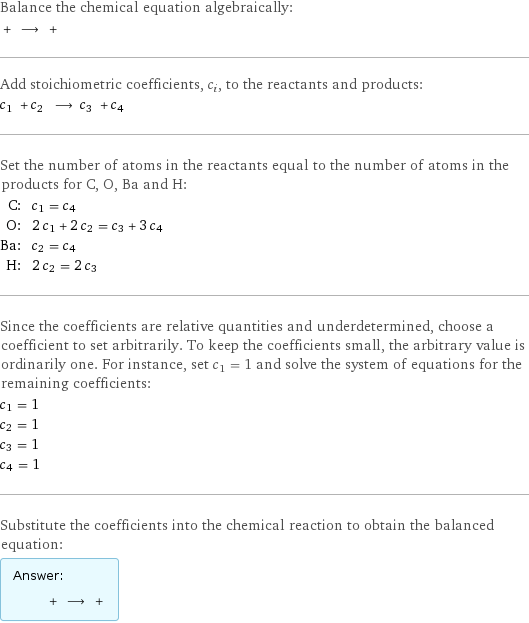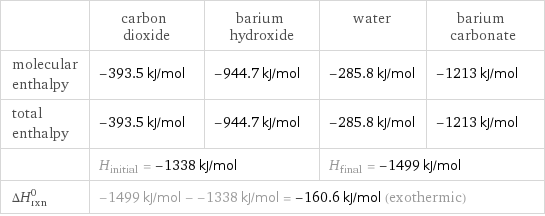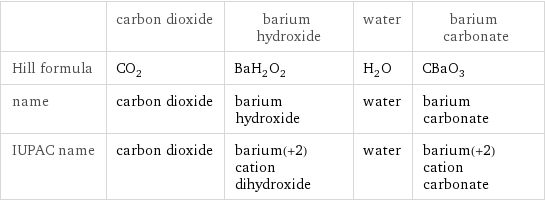Input interpretation

carbon dioxide + barium hydroxide ⟶ water + barium carbonate
Balanced equation

Balance the chemical equation algebraically: + ⟶ + Add stoichiometric coefficients, c_i, to the reactants and products: c_1 + c_2 ⟶ c_3 + c_4 Set the number of atoms in the reactants equal to the number of atoms in the products for C, O, Ba and H: C: | c_1 = c_4 O: | 2 c_1 + 2 c_2 = c_3 + 3 c_4 Ba: | c_2 = c_4 H: | 2 c_2 = 2 c_3 Since the coefficients are relative quantities and underdetermined, choose a coefficient to set arbitrarily. To keep the coefficients small, the arbitrary value is ordinarily one. For instance, set c_1 = 1 and solve the system of equations for the remaining coefficients: c_1 = 1 c_2 = 1 c_3 = 1 c_4 = 1 Substitute the coefficients into the chemical reaction to obtain the balanced equation: Answer: | | + ⟶ +
Structures

+ ⟶ +
Names

carbon dioxide + barium hydroxide ⟶ water + barium carbonate
Reaction thermodynamics
Enthalpy

| carbon dioxide | barium hydroxide | water | barium carbonate molecular enthalpy | -393.5 kJ/mol | -944.7 kJ/mol | -285.8 kJ/mol | -1213 kJ/mol total enthalpy | -393.5 kJ/mol | -944.7 kJ/mol | -285.8 kJ/mol | -1213 kJ/mol | H_initial = -1338 kJ/mol | | H_final = -1499 kJ/mol | ΔH_rxn^0 | -1499 kJ/mol - -1338 kJ/mol = -160.6 kJ/mol (exothermic) | | |
Chemical names and formulas

| carbon dioxide | barium hydroxide | water | barium carbonate Hill formula | CO_2 | BaH_2O_2 | H_2O | CBaO_3 name | carbon dioxide | barium hydroxide | water | barium carbonate IUPAC name | carbon dioxide | barium(+2) cation dihydroxide | water | barium(+2) cation carbonate